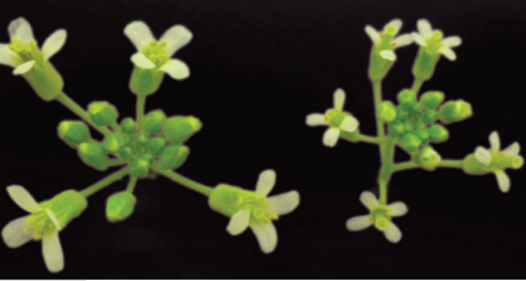Paper of the month (July 2010)
 . .
Haploid plants produced by centromere-mediated genome elimination
Maruthachalam Ravi & Simon W. L. Chan*
Department of Plant Biology, University of California, Davis, Davis, California 95616, USA
*Corresponding author: Simon W. L. Chan (Correspondence and requests for materials should be addressed to S.W.L.C. (srchan@ucdavis.edu).)
Refernce: Nature 464, 615-618 (25 March 2010)
doi:10.1038/nature08842
Summary
Production of haploid plants that inherit chromosomes from only one parent can greatly accelerate plant breeding1, 2, 3. Haploids generated from a heterozygous individual and converted to diploid create instant homozygous lines, bypassing generations of inbreeding. Two methods are generally used to produce haploids. First, cultured gametophyte cells may be regenerated into haploid plants4, but many species and genotypes are recalcitrant to this process2, 5. Second, haploids can be induced from rare interspecific crosses, in which one parental genome is eliminated after fertilization6, 7, 8, 9, 10, 11. The molecular basis for genome elimination is not understood, but one theory posits that centromeres from the two parent species interact unequally with the mitotic spindle, causing selective chromosome loss12, 13, 14. Here we show that haploid Arabidopsis thaliana plants can be easily generated through seeds by manipulating a single centromere protein, the centromere-specific histone CENH3 (called CENP-A in human). When cenh3 null mutants expressing altered CENH3 proteins are crossed to wild type, chromosomes from the mutant are eliminated, producing haploid progeny. Haploids are spontaneously converted into fertile diploids through meiotic non-reduction, allowing their genotype to be perpetuated. Maternal and paternal haploids can be generated through reciprocal crosses. We have also exploited centromere-mediated genome elimination to convert a natural tetraploid Arabidopsis into a diploid, reducing its ploidy to simplify breeding. As CENH3 is universal in eukaryotes, our method may be extended to produce haploids in any plant species.
-----------------------------------------------------------------------------
Click here for previously featured paper of the month.
|